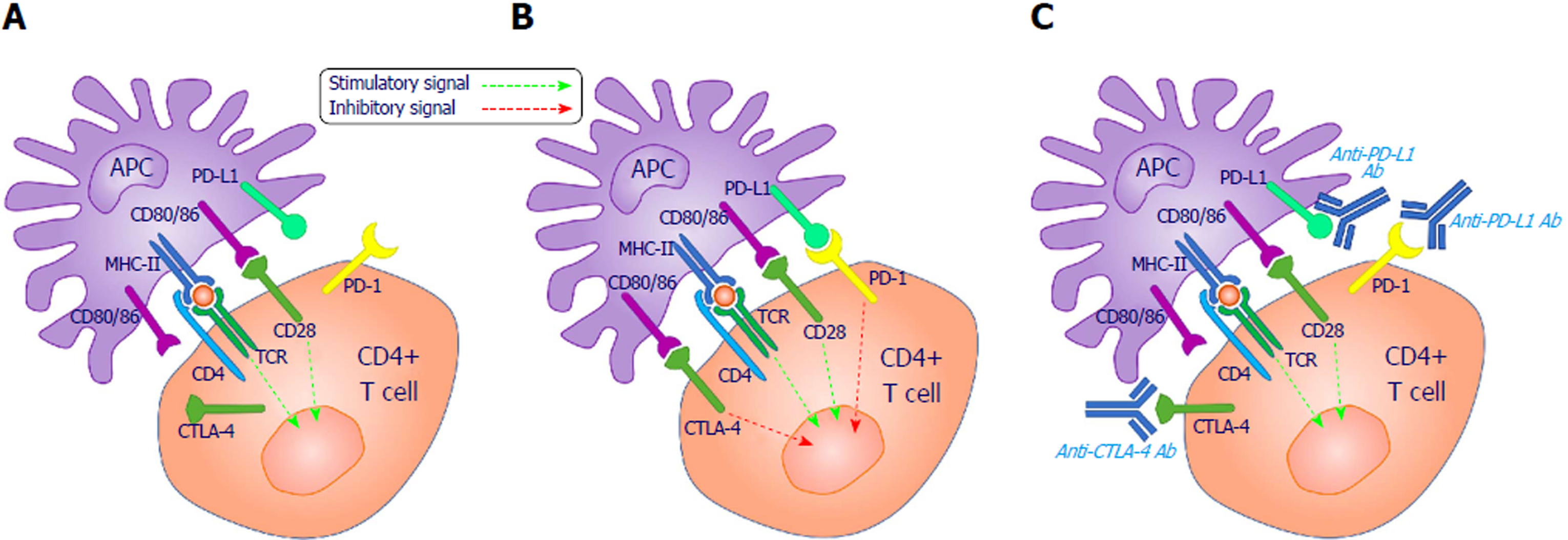Copyright
©The Author(s) 2018.
Figure 1 T cells are subjected to co-stimulatory and co-inhibitory signals through interactions of their plasma membrane receptors with ligands on the surface of antigen presenting cells (dendritic cells and macrophages), as well as tumor cells.
Targeting of the co-inhibitory receptors by specific antibodies block the receptor-coupled inhibitory signals and enhance T cell proliferation and cytokine production to augment overall antitumor T cell responses. A: A productive interaction of T cells with antigen presenting cells (APCs) results in rapid delivery of stimulatory signals, leading to T cell activation; B: T cell activation leads to surface expression of cytotoxic T lymphocyte associated antigen-4 (CTLA-4). Interactions between CTLA-4 and programed cell death-1 (PD-1) co-inhibitory immune checkpoint receptors with the CD80/86 and PD-L1 ligands, respectively, on the APC surface result in the delivery of inhibitory signals that downregulate T cell activation and cytokine production; C: Targeting of CTLA-4 and PD-1 co-inhibitory receptors on T cells or the PD-1 ligand PD-L1 on the APC (or tumor cells) can block the inhibitory signals, increase the intensity and efficacy of anti-tumor T cell responses, and induce durable clinical responses and therapeutic benefits in cancer patients.
- Citation: Isakov N. Cancer immunotherapy by targeting immune checkpoint receptors. World J Immunol 2018; 8(1): 1-11
- URL: https://www.wjgnet.com/2219-2824/full/v8/i1/1.htm
- DOI: https://dx.doi.org/10.5411/wji.v8.i1.1









